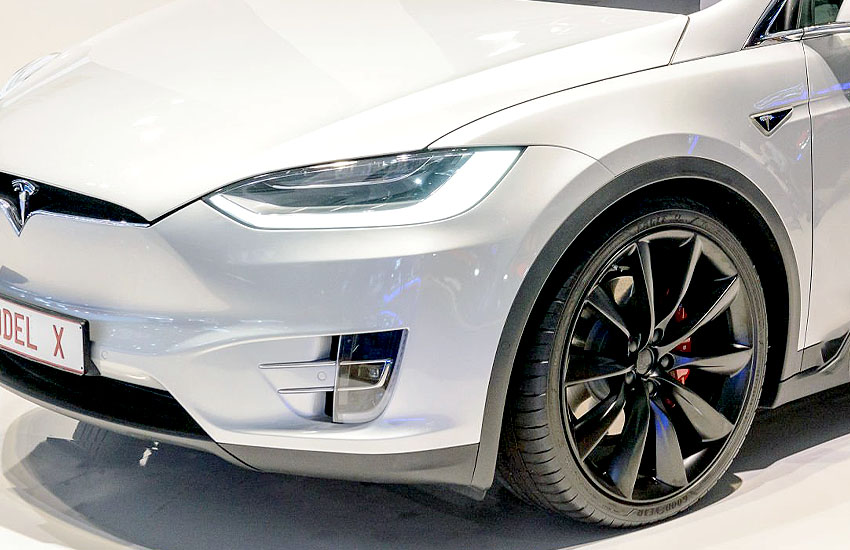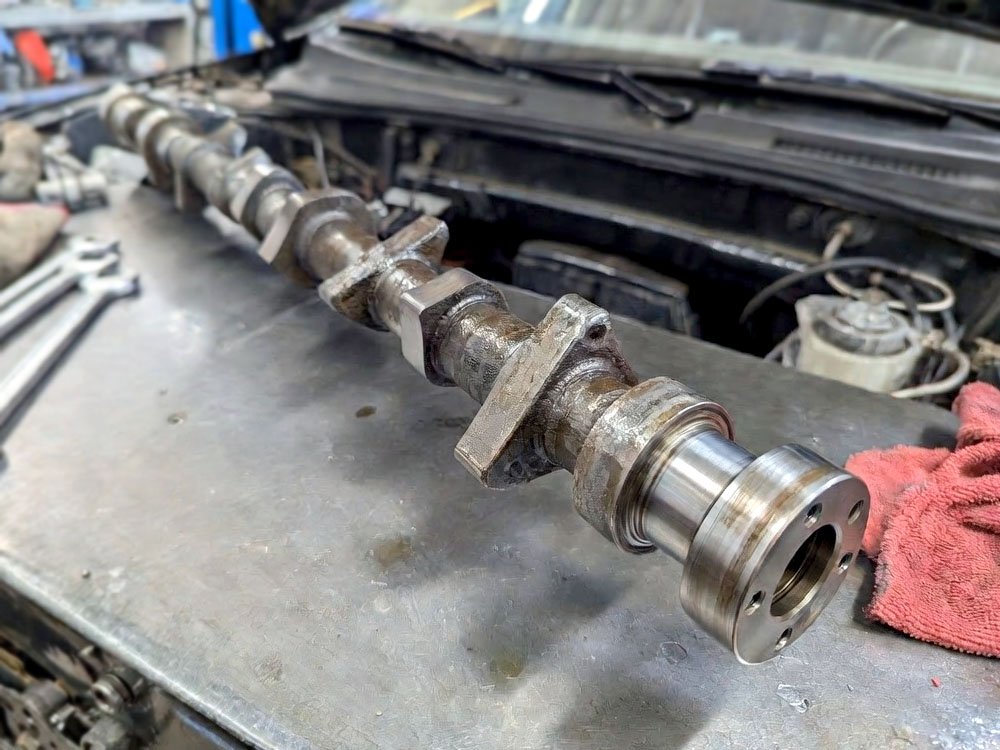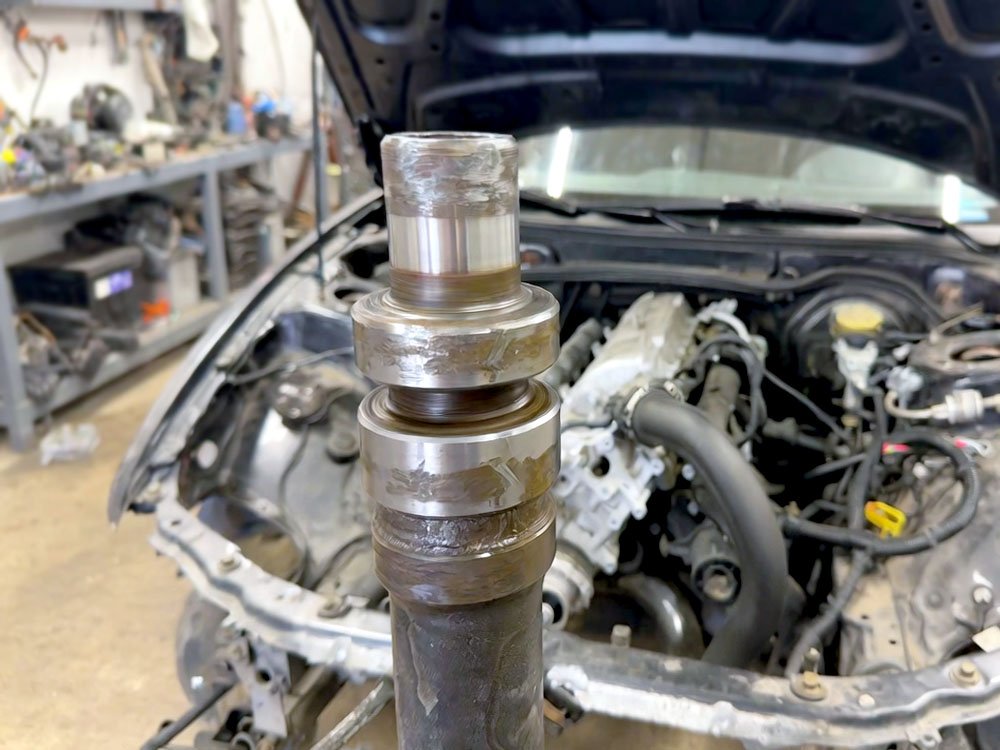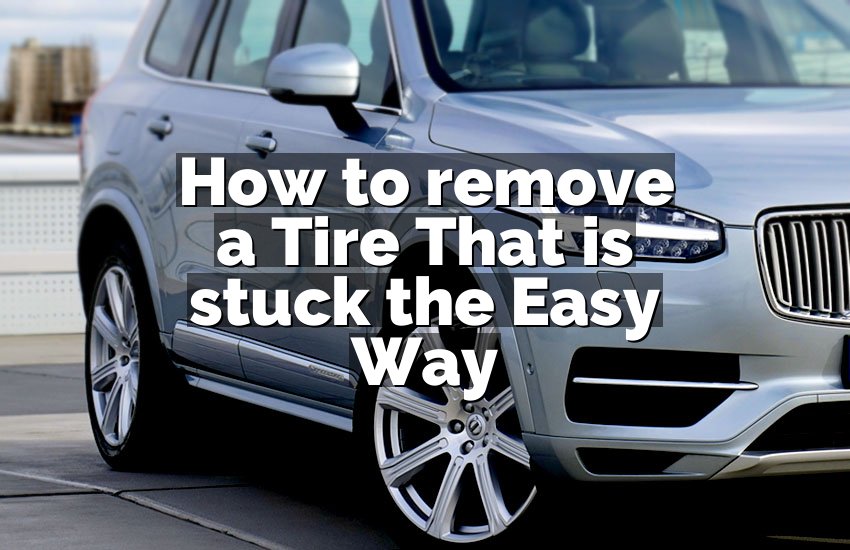Have you ever noticed a strange knocking sound coming from your car when you hit the brakes? It can be pretty worrying, right? Well, you’re not alone. Lots of people experience this issue, and it’s important to know what might be causing it and how to fix it.
In this blog post, we’re going to dive into why your car might be making that knocking noise when you brake. We’ll talk about some common reasons, like worn-out brake pads or loose brake calipers, and what you can do to address the problem.
Understanding what’s causing the noise is the first step towards getting it fixed and keeping your car running smoothly. So, if you’re tired of that annoying knocking sound every time you brake, keep reading to learn more!

Common Causes Of Knocking Noise
When your car makes a knocking noise while braking, it can be a cause for concern. Ignoring this issue could lead to more serious problems down the line. To help you identify and address the issue, here are some common causes of knocking noise when braking.
Worn Brake Pads
One of the most common culprits behind a knocking noise when braking is worn brake pads. Over time, the brake pads can become thin and worn out, causing them to lose their ability to provide a smooth and quiet stop. When this happens, you might hear a knocking or grinding sound when you apply the brakes.
Replacing the worn brake pads is crucial to restore the functionality and safety of your braking system. If you’re experiencing a knocking noise, it’s recommended to have a professional mechanic inspect your brake pads and replace them if necessary.
Loose Brake Calipers
Another common cause of knocking noise when braking is loose brake calipers. Brake calipers are responsible for applying pressure to the brake pads, causing them to clamp down on the rotor. However, if the calipers become loose, they can rattle and create a knocking sound when you use the brakes.
To fix this issue, the brake calipers need to be inspected and tightened correctly. Neglecting this problem can lead to uneven brake pad wear and potential damage to the braking system. Therefore, it’s important to have a professional mechanic assess your brake calipers and address any loose components.
Remember, addressing the causes of knocking noise when braking is crucial to ensure your safety on the road. By understanding these common issues and taking prompt action, you can maintain the optimal performance of your braking system and enjoy a smooth, noise-free ride.
Other Possible Causes
If your car is making a knocking noise when braking, there could be several other potential causes. Understanding these additional factors can help you pinpoint the issue and address it effectively.
Warped Brake Discs
Warped brake discs can lead to a knocking sound when braking. Overheating due to aggressive or prolonged braking can cause the discs to warp. Additionally, improper torqueing of the wheel lugs can also contribute to disc warping. Regular inspections and proper maintenance can help prevent this issue.
Faulty Brake Hardware
Faulty brake hardware is another potential cause of knocking noise. Worn out or incorrectly installed calipers, pads, or retainers can lead to irregular brake contact, resulting in the noise. Routine checks and prompt replacement of worn components can help mitigate this issue.
Damaged Wheel Bearings
Damaged wheel bearings can manifest as a knocking noise during braking. Neglected lubrication or excessive wear due to prolonged use can contribute to this issue. Regular maintenance and timely replacement of worn bearings are crucial for avoiding this problem.
Detecting The Issue
Symptoms of Knocking Noise:
- Grinding or clicking sound while braking
- Feeling vibration in the brake pedal
- Uneven braking or pulling to one side
Visual Inspection:
Inspect brake pads, rotors, calipers for signs of wear or damage.
Road Test:
- Drive car at low speed and gradually apply brakes
- Listen for the knocking noise
- Observe if noise occurs under specific braking conditions
Diagnosing The Problem
Diagnosing the problem when your car makes a knocking noise when braking is crucial for ensuring safety and maintaining your vehicle’s performance. Some common causes of this issue include worn brake pads, faulty brake calipers, damaged brake discs, worn-out brake hardware, and faulty wheel bearings. By conducting thorough inspections, you can pinpoint the exact source of the problem and take the necessary steps to fix it promptly.
Brake Pad Inspection
Inspect the thickness and condition of the brake pads to see if they are worn out. Worn brake pads can cause knocking noises when braking and should be replaced if necessary.
Checking Brake Calipers
Examine the brake calipers for any signs of damage or sticking. Faulty brake calipers can create knocking sounds and may require repair or replacement.
Examining Brake Discs
Check the brake discs for warped, scored, or uneven wear. Damaged brake discs can lead to unusual noises when braking and should be resurfaced or replaced.
Inspecting Brake Hardware
Inspect the brake hardware, including clips, pins, and springs, for any signs of wear or damage. Worn-out brake hardware can cause abnormal brake operation and should be replaced as needed.
Assessing Wheel Bearings
Examine the wheel bearings for any looseness or wear. Faulty wheel bearings can result in knocking sounds when braking and should be repaired or replaced to prevent further issues.
Fixing The Knocking Noise
Fixing the Knocking Noise when braking is essential for the safety and performance of your vehicle. Ignoring this issue can lead to further damage, decreased braking efficiency, and potential safety hazards. To address this, it’s important to identify the specific cause and implement the appropriate solution. Here are some effective methods to fix the knocking noise:
Replacing Worn Brake Pads
In many cases, worn brake pads can be the culprit behind the knocking noise. Over time, the friction material on the pads wears down, causing metal-on-metal contact and subsequent noise. By replacing worn brake pads, you can eliminate the knocking sound and restore proper braking function.
Tightening Brake Calipers
Loose or misaligned brake calipers can result in a knocking noise during braking. By carefully inspecting the calipers and ensuring they are securely fastened and properly aligned, you can address this issue. Tightening the brake calipers can effectively eliminate the unwanted knocking noise.
Resurfacing Or Replacing Brake Discs
Warped or uneven brake discs can lead to knocking noises. If the discs are still within the permissible thickness, resurfacing them can resolve the issue. However, if the discs are too worn or damaged, replacing them may be necessary to eliminate the noise.
Repairing Or Replacing Brake Hardware
Worn or damaged brake hardware, such as springs, clips, or shims, can contribute to the knocking noise. By repairing or replacing the brake hardware, you can ensure that the components are functioning properly, thereby eliminating the noise and optimizing braking performance.
Replacing Damaged Wheel Bearings
Damaged wheel bearings can also result in a knocking noise when braking. If a thorough inspection reveals issues with the wheel bearings, replacing them is crucial to resolving the noise and maintaining the safety and integrity of the braking system.
Preventing Knocking Noise
If your car makes a knocking noise when braking, it can be a cause for concern. Luckily, there are several potential causes and fixes to address this issue. By identifying the source of the noise and taking appropriate action, you can prevent further damage and ensure a smoother driving experience.
Regular Brake Maintenance
Maintaining your car’s brakes regularly is crucial for preventing knocking noise. By following these simple preventive measures, you can extend the lifespan of your brake system and minimize the chances of encountering any issues when braking:
- Inspect brake components: Regularly inspect the brake pads, rotors, calipers, and other brake components for any signs of wear and tear. Look for uneven wear, cracks, or any abnormalities that may affect their performance.
- Clean brake components: Remove any dirt, debris, or rust from the brake components using a wire brush or compressed air. This will help maintain proper contact and ensure smooth operation.
- Check brake fluid: Regularly check the brake fluid level and quality. If necessary, replace the brake fluid according to your vehicle manufacturer’s recommendations.
- Adjust brake system: Ensure that the brakes are properly adjusted to provide optimal performance. If you notice any signs of excessive brake pedal travel or a spongy feel, have a professional mechanic inspect and adjust the brake system.
Proper Brake Pad Installation
When it comes to preventing knocking noise, proper brake pad installation is vital. Here are some key aspects to consider when installing brake pads:
- Select the right brake pads: Choose the appropriate brake pads for your specific car make and model. Consider factors such as driving conditions, style, and expected lifespan to ensure proper compatibility.
- Clean the brake calipers: Before installing new brake pads, make sure to clean the brake calipers and remove any dirt or debris. This step will help achieve a secure fit and prevent noise-causing vibrations.
- Apply brake lubricant: Apply a thin layer of brake lubricant on the back of the brake pad. This will help reduce friction and noise caused by brake pad vibrations.
- Follow the manufacturer’s instructions: Always adhere to the manufacturer’s instructions when installing brake pads. Pay attention to torque specifications, proper orientation, and any additional recommendations to ensure a correct installation.
By implementing these preventive measures, you can reduce the chances of your car making knocking noise when braking. Regular brake maintenance and proper brake pad installation are instrumental in keeping your brake system in excellent condition, offering a quiet and reliable braking experience. Remember, if you’re unsure about any aspect of brake maintenance or installation, it’s best to consult a professional mechanic to ensure the job is done correctly.
Conclusion
Addressing a knocking noise when braking in your car is crucial for safety and peace of mind. By understanding the potential causes and fixes, you can take proactive measures to resolve the issue and ensure smooth and reliable braking performance.
Stay informed, stay safe, and enjoy your worry-free driving experience.


